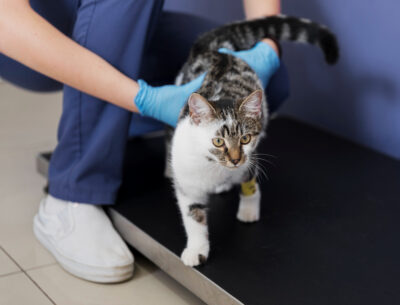Are you tired of rodents taking over your trash cans? Would you like to be able to walk your dog at night without fearing it’ll get sprayed by a skunk? Or do you just want to know: do skunks bite?
Skunks are common animals that aren’t as dangerous as you may think. With a few tips and tricks, you can know all you need to know about skunks, how to prepare for trouble, and where to find help.
Keep reading to learn more.
What are Skunks?
Skunks are mammals of the family Mephitidae and are native to North and South America and parts of Africa. They are recognizable for their unique black and white fur and their defensive behavior of emitting a strong-smelling spray. They don’t usually bite, but when they do they can cause considerable pain.
It will typically bite when scared or threatened or when trying to protect their young. To avoid being bitten, it’s important to never approach a skunk, no matter how cute it looks. Also, remember to always keep a safe distance from skunks and to block any hiding places for them.
How to Avoid a Skunk Bite
Even though they can spray, they would prefer to avoid any contact with you and will usually keep their distance. However, skunks can bite, so it is important to know how to avoid a skunk bite. If you see a skunk, slowly walk backward and remain as still as possible until it is out of sight.
If a skunk’s behavior feels threatened, it can stand up high, lower its tail, and wave from side to side; these are signals that you need to back away. Don’t try to feed a skunk or handle one by yourself; they can bite if they feel threatened, and pest control specialists should be contacted to handle skunks safely.
Treating a Skunk Bite
To treat a skunk bite, the wound should be washed and disinfected as soon as possible, and medical attention should be sought if the wound is deep or there is substantial bleeding. To ensure that the virus does not spread, any linen, cloth, or other material that has been exposed to the wound should be discarded and discarded safely. If the skunk is not immunized, it should be seen by a veterinarian for a rabies shot and other treatments.
What Attracts Skunks
Skunks are attracted to food sources such as pet food, birdseed, or human food left outdoors. They can also be attracted to trash, compost piles, pet and wildlife feeders, and open sources of water. When living near skunks, it is important to secure garbage cans, take down pet/birdfeeders, and move away from any open water sources.
Wildlife Management
Wildlife management practices must be implemented in order to protect skunks, humans, and local wildlife. Areas frequented by skunks, such as their dens or feeding areas, should be clearly marked to prevent accidental encroachment.
Homeowners should protect their yards from skunks by removing habitat and securing garbage and pet food. Don’t wait; contact skunk removal services today and get your problem taken care of.
Do Skunks Bite? Exploring Skunk Behavior and Biting Tendencies
Do skunks bite? Skunks are generally docile animals and can become wonderful family pets; however, they may bite if they become frightened or feel threatened.
As such, it is important to give skunks a wide berth and to give them time to acclimate to new environments. With the right kind of care, they can provide a lot of love and joy.
Found this helpful? Browse around for more related articles on our blog.










